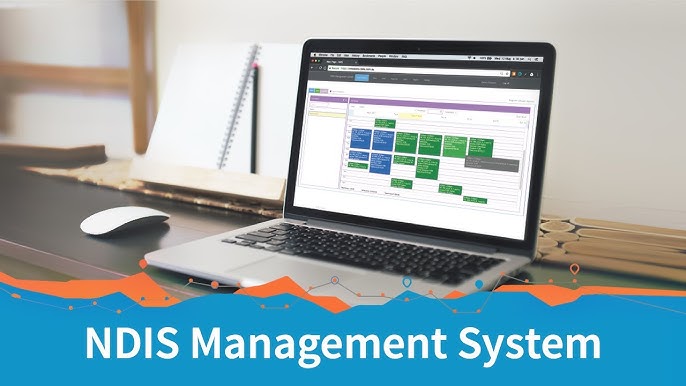Unveiling the Power of Web Scraping with Python and Proxies
 Sameer Anthony
Sameer Anthony
In the digital age, data rules supreme. Businesses, researchers, and developers hunger for information to make informed decisions and create innovative solutions. This hunger has given rise to a powerful tool known as web scraping. In this article, we'll explore the world of web scraping, focusing on Python-based techniques and the essential role of proxies. Whether you're a seasoned developer or just curious about data extraction, you're in for an enlightening journey.
Understanding Web Scraping
What is Web Scraping?
At its core, web scraping is the automated process of extracting data from websites. It involves fetching web pages, parsing HTML or other markup languages, and extracting useful information for various purposes.
The Need for Web Scraping
Web scraping is crucial for:
Market Research: Gathering data on competitors, pricing, and product listings.
Aggregation: Collecting news, blogs, and social media updates.
Data Analytics: Analyzing trends, sentiments, and user behaviors.
Business Intelligence: Tracking stock prices, financial reports, and economic indicators.
Lead Generation: Extracting contact information from websites.
Academic Research: Collecting data for studies and experiments.
Python Web Scraping
Why Python?
Python is the go-to language for web scraping due to its readability, extensive libraries, and robust community support. Some popular Python libraries for web scraping include BeautifulSoup and Scrapy.
Getting Started with Python Web Scraping
To begin your web scraping journey with Python, follow these steps:
Install Python: If you haven't already, download and install Python from the official website
Select a Library: Choose a Python library that suits your scraping needs. BeautifulSoup is great for beginners, while Scrapy offers more advanced features.
Request Web Pages: Use Python libraries like requests to fetch web pages.
Parse HTML: Extract relevant data by parsing the HTML structure of the web page.
Store Data: Save the scraped data in a structured format, such as CSV, JSON, or a database.
Best Practices for Python Web Scraping
When scraping with Python, remember these best practices:
Respect Robots.txt: Check a website's robots.txt file to ensure you're not violating its terms of use.
Use Delay and Rate-Limiting: Don't overload a website with requests. Implement delays between requests to be more polite and avoid IP bans.
Handle Errors Gracefully: Prepare your code to handle exceptions and errors, ensuring it continues running smoothly.
The Role of Proxies
Why Proxies are Essential
Proxies play a vital role in web scraping, and here's why:
P Rotations: Proxies allow you to change your IP address, making it harder for websites to detect and block your scraping activity.
Geo-targeting: Proxies let you scrape data from websites that are geo-restricted, ensuring you access the information you need.
Load Balancing: Distribute your scraping requests across multiple proxies to prevent IP bans and enhance speed.
Choosing the Right Proxy
Selecting the right proxy is crucial for successful web scraping. Consider factors like speed, reliability, and the availability of residential or data center proxies. Tools like zenscrape.com offer a wide range of proxy options to cater to your specific needs.
Building Your Python Web Scraper
Now that you understand the basics let's put them into practice by building a Python web scraper that utilizes proxies to extract data efficiently.
Import Libraries: Import the necessary Python libraries, including your chosen scraping library and a proxy management tool.
Set Up Proxies: Configure your proxy settings, including IP addresses and authentication credentials.
Fetch Web Pages: Use Python to request web pages, utilizing your proxies.
Parse HTML: Extract the desired data from the web pages using HTML parsing techniques.
Store Data: Save the scraped data in your preferred format, ensuring it's structured and organized.
Conclusion
Python web scraping with proxies opens up a world of possibilities for data-driven decision-making and innovation. By harnessing the power of these tools, you can gather valuable insights, stay competitive, and drive your projects to success.
FAQs
Is web scraping legal?
Web scraping is generally legal as long as it adheres to ethical guidelines and respects a website's terms of service. However, some websites may explicitly prohibit scraping in their terms, so always check before scraping.
Can I scrape websites without using proxies?
While it's possible to scrape without proxies, using them enhances your scraping capabilities by providing anonymity, preventing IP bans, and accessing geo-restricted content.
Are there any free proxy services available?
Yes, there are free proxy services, but they often come with limitations in terms of speed, reliability, and availability. Paid proxy services offer more robust options.
How can I handle CAPTCHA challenges while scraping?
To handle CAPTCHA challenges, you can use CAPTCHA solving services or implement CAPTCHA-solving algorithms in your scraper.
What is the best time to scrape websites to avoid detection?
Scraping during off-peak hours or using rate-limiting techniques to simulate human behavior can help reduce the risk of detection by websites.
Web scraping with Python and proxies is a dynamic duo that empowers you to access and analyze data like never before. Dive into the world of web scraping and unlock the potential of information at your fingertips.
Subscribe to my newsletter
Read articles from Sameer Anthony directly inside your inbox. Subscribe to the newsletter, and don't miss out.
Written by
